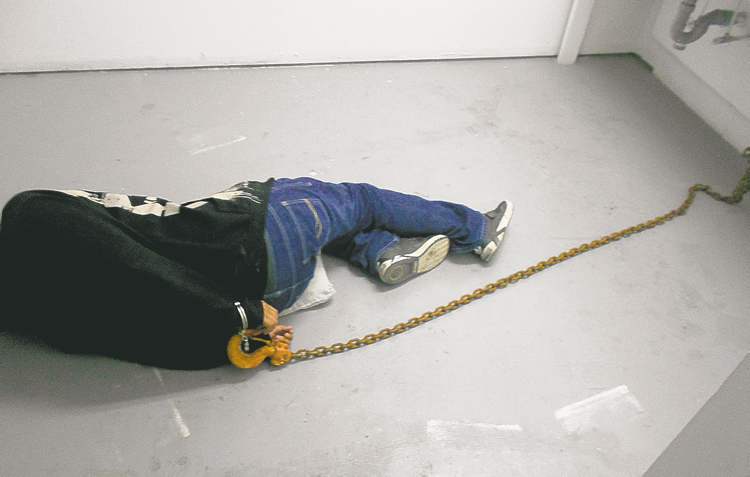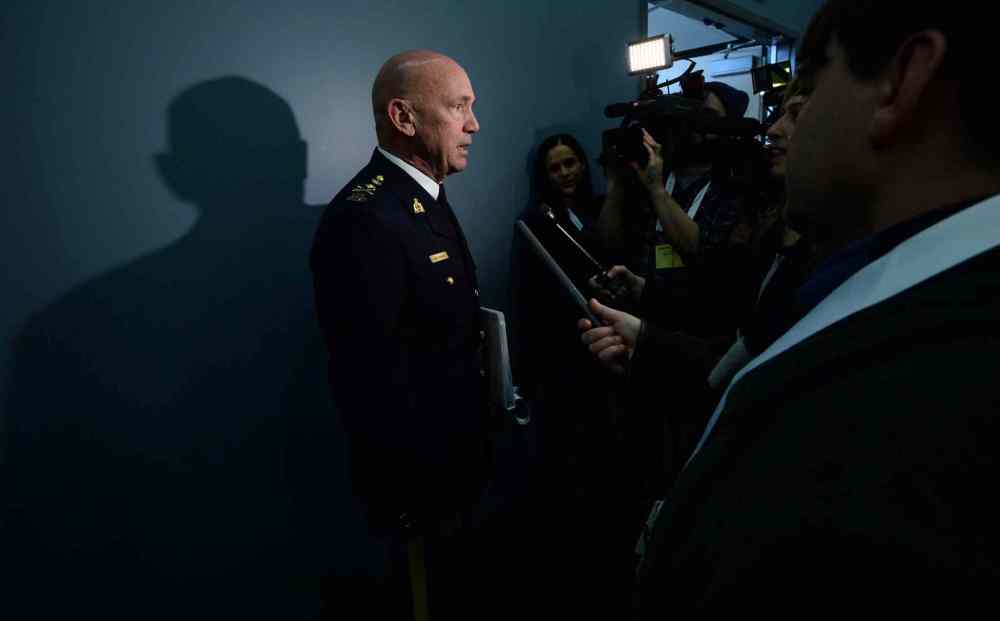First Nation to be granted use of RCMP holding cell instead of using makeshift jail
Advertisement
Read this article for free:
or
Already have an account? Log in here »
To continue reading, please subscribe:
Monthly Digital Subscription
$1 per week for 24 weeks*
- Enjoy unlimited reading on winnipegfreepress.com
- Read the E-Edition, our digital replica newspaper
- Access News Break, our award-winning app
- Play interactive puzzles
*Billed as $4.00 plus GST every four weeks. After 24 weeks, price increases to the regular rate of $19.00 plus GST every four weeks. Offer available to new and qualified returning subscribers only. Cancel any time.
Monthly Digital Subscription
$4.75/week*
- Enjoy unlimited reading on winnipegfreepress.com
- Read the E-Edition, our digital replica newspaper
- Access News Break, our award-winning app
- Play interactive puzzles
*Billed as $19 plus GST every four weeks. Cancel any time.
To continue reading, please subscribe:
Add Free Press access to your Brandon Sun subscription for only an additional
$1 for the first 4 weeks*
*Your next subscription payment will increase by $1.00 and you will be charged $16.99 plus GST for four weeks. After four weeks, your payment will increase to $23.99 plus GST every four weeks.
Read unlimited articles for free today:
or
Already have an account? Log in here »
Hey there, time traveller!
This article was published 13/01/2016 (3579 days ago), so information in it may no longer be current.
OTTAWA — A northern Manitoba First Nation should soon be able to stop chaining up disorderly residents in a hockey arena if an RCMP promise to provide the keys to its holding cell comes through.

But the move, while welcome, is far short of what indigenous communities in northern Manitoba seek.
Northlands Denesuline First Nation went public in 2012 about having to use a towing chain to handcuff people to a bench in the dressing room of the local arena because the RCMP wouldn’t allow use of their holding cell.
There were no band constables on the reserve with the appropriate training, the RCMP said.
Northlands Denesuline First Nation is a remote, fly-in community in extreme northwestern Manitoba, situated on the shore of Lac Brochet.
In December, Northlands Coun. Joe Dantouze raised the issue with RCMP Commissioner Bob Paulson when he attended the annual December meeting of the Assembly of National Chiefs. He told Paulson safety officers on the First Nation were forced to break the law in order to maintain peace and order.
Paulson promised to respond within days, but it has taken more than a month to come up with a possible solution.
A spokesman for the RCMP in Manitoba told the Free Press Wednesday Paulson, and Assistant Commissioner Kevin Brosseau, commanding officer of D Division in Manitoba, looked at policing services in Northlands and provided a summary of their findings.
As a result, the RCMP will provide a key for the holding cell once “proper security clearances and training were completed for all personnel requesting access.”
The RCMP have also committed to have senior D Division officers work directly with Northlands to complete and process those clearances.
“The RCMP is committed to providing optimum policing services to the NDFN and will continue to assist and address all matters that may impact the safety of the community,” wrote RCMP D Division spokesman Robert Cyrenne in an email to the Free Press.

The Northlands situation shone a light on the piecemeal policing offered in Manitoba’s remote north, where RCMP detachments are not staffed full time in half the 30 reserves. Many receive an RCMP visit just once a month unless there is a specific incident.
The 34-year-old federal band constable program was eliminated by Ottawa last year, leaving the province to step in with a new First Nations safety officer program. Unlike band constables, safety officers can’t enforce band bylaws, don’t have much, if any, liaison with the RCMP, and have no access to RCMP holding cells because they don’t have the required training. There were 31 Manitoba communities served by the Band Constable Program.
Manitoba Keewatinowi Okimakanak Grand Chief Sheila North Wilson said the Free Press was the first to inform her of the RCMP decision on Northlands, even though she has been working with the RCMP on northern policing issues for months.
“This doesn’t go far enough,” she said. “It’s better than nothing, but we need the band constable program reinstated.”
The big dream would be to establish a northern indigenous police service similar to the Dakota Ojibway Police Service, which is a full-fledged police force, funded by a joint agreement between Ottawa and Manitoba, which polices six reserves in southern Manitoba.
“We’ve had these discussions before, but it’s always gone back to money,” said North Wilson.
In December, Manitoba Attorney General Gord Mackintosh reached out to Ottawa seeking help to improve policing on First Nations, but he hasn’t heard back.


